
Avangarda i politika
One always searches for some symbolic point from which one can claim that something ended and something else began, even though there are no beginnings and no endings.
More...We kindly inform you that, as long as the subject affiliation of our 300.000+ articles is in progress, you might get unsufficient or no results on your third level or second level search. In this case, please broaden your search criteria.

One always searches for some symbolic point from which one can claim that something ended and something else began, even though there are no beginnings and no endings.
More...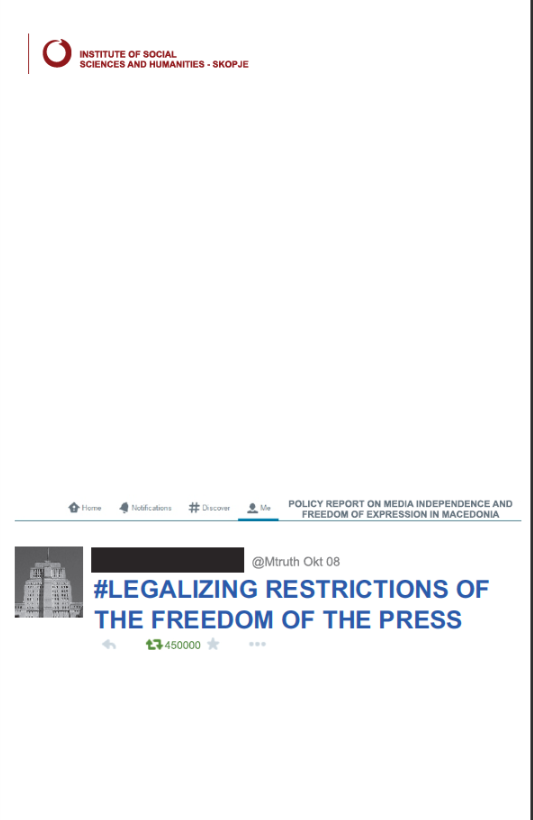
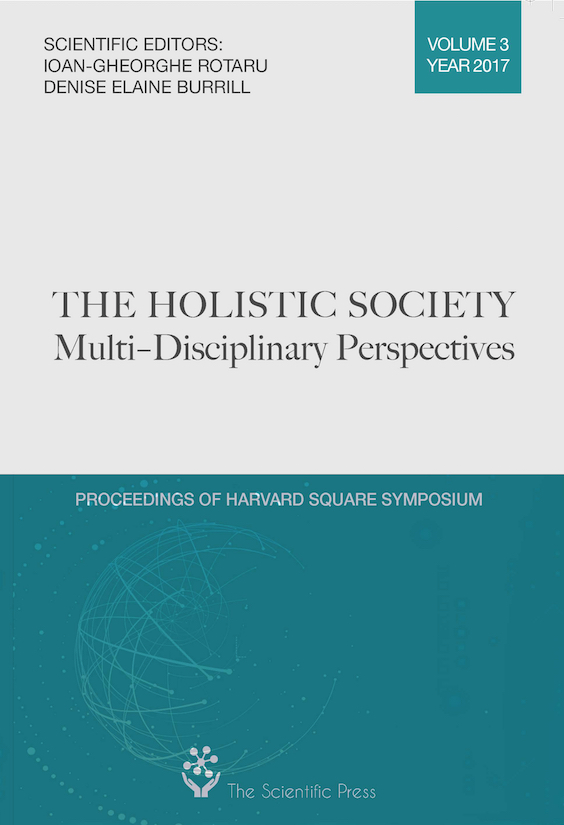
This article represents a religious approach for the improvement of communication in a new century (and a millennium) when ‘communicating’ is a deep relational and social necessity. Communication is a natural human act—ontologically necessary and practically fundamental—which represents not just the reaction to the immediate necessity, but, a phenomenon meant to impart something of its ontology. The novelty of the ethical aspect—which the Church wishes to engage—is that it regards holistic integration of communication as a sacred act, which affects deeply social communion and cohesion. The paper also engages the challenge of going deeply into some basic ethical principles in order to create an integrative vision of communication as a relational, social and sacred act.
More...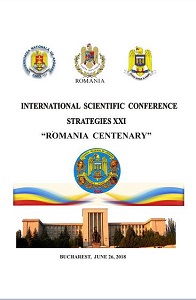
eIDAS is a set of standards for electronic identification and trust services for electronic transactions in the EU internal market, providing a common basis for secure electronic interaction between citizens, companies and cross-border public authorities.Promoting knowledge of trust services, increasing their utilization and building online trust are key factors for economic and social development, streamlining online and private sector services, and diversifying economic transactions across the Single Digital Market.
More...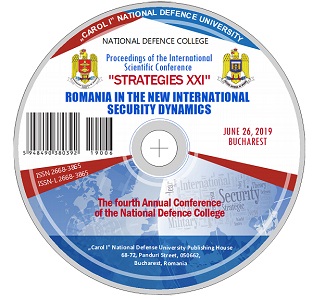
Today, our society can be described in a multitude manners and ways, using a mixture of chosen words that can have sometimes a powerful impact over the audience. In our case, we would like to describe our society through the words: complex, interconnected and unaware. It seems that because of the high consumption of the means of mass communication, all of the fields of activity of the society are affected, including areas such as security. In this article we will try to describe and to demonstrate that the media culture, which is expanding rapidly, can and will continuously affect and lead to the transformation of the (security) environment.
More...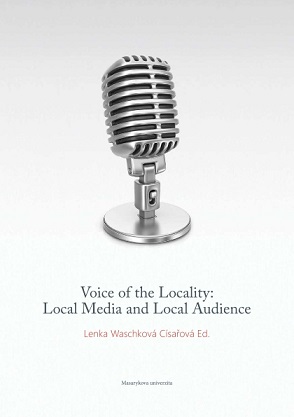
Locality has in its nature something irresistible, that plays on a string of emotions. We can see it every day in, for example, the adoration of local products, local dishes, local craftsmanship, or local media. Moreover, emotions associated with locality attract attention though they might be strong and negative at the same time. In my opinion, however, the former neglect of the topic of local media among academics does not mean that local is not sexy (cf. Nielsen, 2016). It rather means that researchers are less willing to deal with complicated layers of emotions (cf. Kotišová, 2017) than with more graspable facts. One can see it, often anecdotally, at media conferences where researchers admit that they do research on local media in localities where they come from. They go on the thin ice of researching emotions (maybe also their own) while at the same time knowing the locality with important contacts therein, so they still somewhat remain on the safe side of pragmatism. If it was agreed that there was something important behind the local in general and local media in particular, the problems stimulated by the strength of emotionality behind locality can emerge illustrating the vagueness of local media discourse. Underscoring the problem directly, Kitch (2008) points to how journalism scholars have been unwilling to research emotions which are often deemed “soft” and subjective.
More...
Local journalism plays an important role not just in everyday life, but also in framing the past, present and future of local societies. The aim here is to explore how local media – in this case newspapers – use notions of history, traditions and identity to construct meaning, to gain attention, and thus to increase audience engagement. This chapter captures the dynamics of a somewhat special case in local media, a small but affluent autonomous region of Finland, namely the Åland Islands with 6,500 islands and less than 30,000 inhabitants. Despite the limited size of the community, people can choose from a complete offering of local media: two newspapers, a public service broadcast corporation, a commercial radio station and several magazines. This is a Swedish-speaking part of a country where the majority speaks Finnish.
More...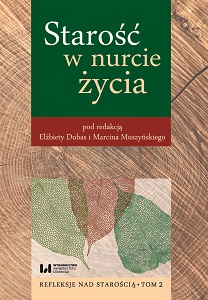
Stepping man in old age does not mean stability and development, but it gives the potential to understand the meaning of his own life, poses in front of the unit next sentence, the goals that must be achieved. It also connects to a number of constraints and difficulties among other things, with a feeling of loneliness and isolation, which are particularly felt by the elderly. Therefore, the process of proper social communication is an important issue in dealing with the elderly. Proper communication can prevent feelings of humiliation, isolation, and degradation. The article is an attempt to approximate the issues of aging and its worthy experience in terms of proper interpersonal communication. Will be presented causes of difficulties in commu¬nicating with older people, the consequences of inadequate communication and ways to build a proper dialogue. The analysis will be based on theoretical knowledge and information gained through non-participating observation.
More...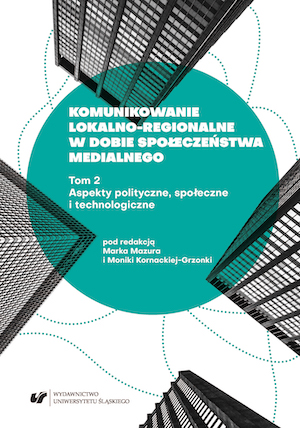
The aim of the article is a multifaceted analysis whose foundation consists in the firstspeech of the President of Poland, Andrzej Duda, delivered at the Jasna Góra monastery. Thus,in her analysis, the author refers to other processes which can be observed in the contemporaryMediaPolis, i.e. the public space which combines politics and entertainment by creating a newpolitical identity. It is in that space that a new, personal type of a politician has emerged –MediaEgo. For that reason, in the course of content analysis, the author intends to shed light onthe changes in the paradigm of image creation in the contemporary political discourse. The newpersonal type of a politician which functions in the space of MediaPolis – MediaEgo – utilizesparticular tools, both rhetorical and communicational, in order to permanently influence theelectorate.In this context, the author differentiates the topoi which constitute the public image ofPresident Andrzej Duda. These include: the topos of faith and religious community; the toposof historical community; the topos of the countryside, patriotism and love for one’s motherland;the topos of a people’s hero (an ordinary person) and the topos of the European Union.Their analysis has allowed the author to showcase a multifaceted strategy of the President’simage creation and present a preliminary study of a new model for analysis of contemporarydiscursive processes.The aim of the article is a multifaceted analysis whose foundation consists in the first speech of the President of Poland, Andrzej Duda, delivered at the Jasna Góra monastery. Thus, in her analysis, the author refers to other processes which can be observed in the contemporary MediaPolis, i.e. the public space which combines politics and entertainment by creating a new political identity. It is in that space that a new, personal type of a politician has emerged – MediaEgo. For that reason, in the course of content analysis, the author intends to shed light on the changes in the paradigm of image creation in the contemporary political discourse. The new personal type of a politician which functions in the space of MediaPolis – MediaEgo – utilizes particular tools, both rhetorical and communicational, in order to permanently influence the electorate.In this context, the author differentiates the topoi which constitute the public image of President Andrzej Duda. These include: the topos of faith and religious community; the topos of historical community; the topos of the countryside, patriotism and love for one’s motherland; the topos of a people’s hero (an ordinary person) and the topos of the European Union. Their analysis has allowed the author to showcase a multifaceted strategy of the President’s image creation and present a preliminary study of a new model for analysis of contemporary discursive processes.
More...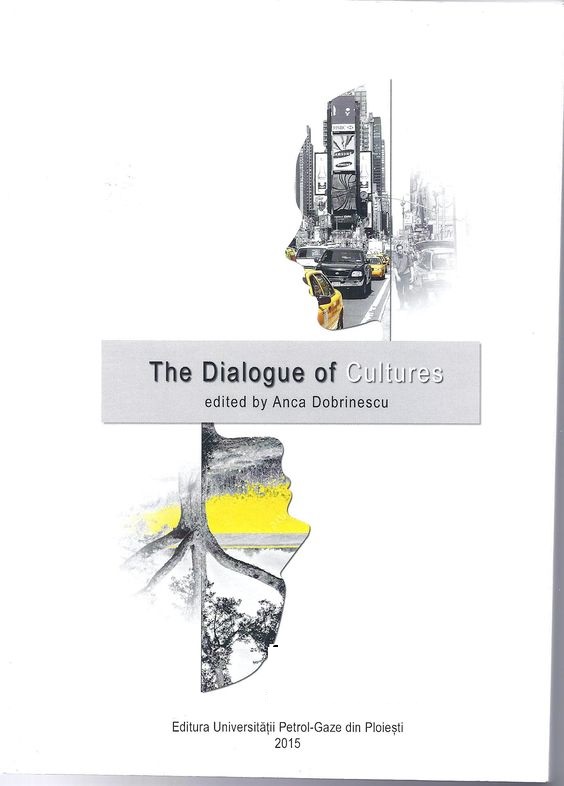
In a world subject to constant change and reconfiguring, societies, previously understood as mono-cultural, have incontestably been refashioned multicultural. The permeability of frontiers made individuals realize that, as denizens of the world, rather than citizens of a country, we live in and through the cultural encounter. Survival is about learning to live at the border, or rather across the borders, where the essential skill is to sense and value diversity and thus cherish the cultural dialogue. Fiction in dialogue with other art forms; fiction as an act of resistance; fiction across cultural borders; cultures in contact; the cultural clash; identity and the cultural and linguistic conflict and dialogue; migration and its linguistic challenges have offered the authors the chance to meet and exchange ideas.
More...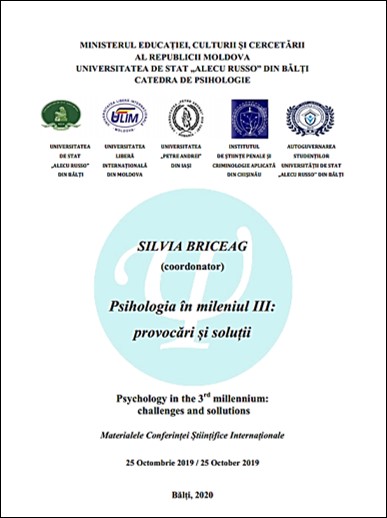
The dimensions that communication styles involve on professional activity urge us to new scientific challenges. The main purpose of this check is to explore the correlation between of the communication style practiced in the professional activity and the level of work satisfaction to the lawyers. The interest for the job satisfaction is motivated by the fact that a part of our life is dedicated to professional activity. Moreover, numerous studies have demonstrated a direct link between underperformance and job dissatisfaction. Thus, if there are positive correlations between the level of job satisfaction and the style of communication practiced, then the style of communication could be investigated as a psychological relevant criterion to the personal and professional development of the lawyers.
More...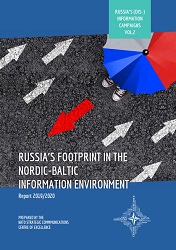
This is the second volume issued in the framework of the project ‘Russia’s (Dis-)Information Campaigns in Nordic-Baltic Countries’. This project was initiated in 2016 as an ongoing effort to monitor and analyse Russia’s (dis-)information influence in the Nordic-Baltic region, which includes Denmark, Estonia, Finland, Iceland, Latvia, Lithuania, Norway and Sweden (the NB8). The first volume was published in January 2018.
More...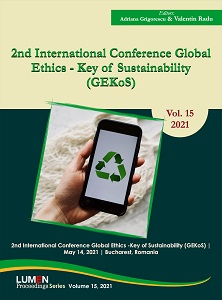
In the age of technology, communication seems to be much easier for public institutions. Citizens' access to the necessary information is much easier, by accessing official websites or by e-mail.The pandemic has limited people's access to interaction with public institutions, which has increased the need to use online digital tools. Thus, the process of digitalization and the process of modernization of the public administration were hastened. This has led to the emergence of new types of social behaviours that have had negative effects on the use of digital tools by public entities.Until now, several approaches to public administration ethics have existed, and they have mostly centered on the civil servant's behaviour in his interaction with citizens and his respect for the workplace. As the online environment has become a necessity for public services in the digital age, ethics in the public system meets new challenges.Today, there is a need for a modernized digital system for civil servants to use. It should facilitate applicants' access to information and protect the confidentiality of certain information in an ethical and professional manner for all parties involved, in order to reduce misinformation.Misinformation in a pandemic can have serious consequences: it can lead to ignoring official health advice and risky behaviour, or it can have a negative impact on our democratic institutions and societies, as well as on the economic and financial situation. Therefore, there is a need for new protection measures, that can protect people, not only for medical safety in a public institution, but for ethic means in the online environment.
More...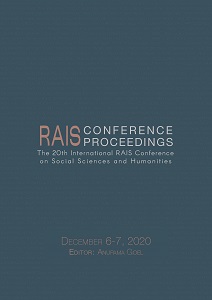
The purpose of the article is to analyze the difference in communication style in men and women. The experimental group consists of 60 respondents (30 men and 30 women), aged between 20 and 30 years. The questionnaire on “Communication Style Analysis” contains 60 items with True / False dichotomous answers. The dependent variable of the study is the communication style and the independent variable is gender. The aim of the research is to determine the causal relationship between gender and communication style.
More...
In education, schools, homes, families, institutions throughout the country and the world, the individual must be neat, punctual, orderly, hardworking, and disciplined. In my work, I analyze the impact of clutter during creation. Throughout history, we have been convinced that chance often defines the entire future of humanity, and great discoveries have not always been associated with the amount of work and dedication invested. Children are prone to clutter, waste, and unrestrained play. Rules do not burden children, and their world is open to all. Children do not know what is possible and what is not and do not understand our stereotypes and regulations. Without rules and laws, society cannot function, but progress and progress into the future always take place when someone deviates from the pattern. All institutions strive for obedience and typification of ways of thinking, which often suffocates the inventive mind. A man who is not trapped by stereotypes finds inspiration and freedom of mind and creation in disorder. In a mess, anything is possible, as in the imagination. Before any discovery in any area of creativity, a “eureka” and a “click” must occur. Materializations thrive after idea and vision. The way to reach these solutions is often inexplicable and unexpected. It requires courage and departure from the rules and boundaries of time and society. People who run the world have the burden of fighting stereotypes. They are often unsupported, misunderstood, ridiculed, and marginalized. Their genius, their freedom is revealed either after death or by a combination of circumstances.
More...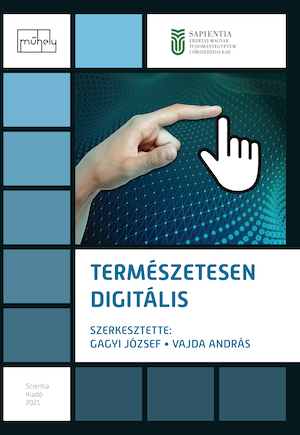
The Internet philosophy we envision is not merely an abstract characterization of the Internet as a self-contained entity since the Internet exists and exists as a component of a complex world populated by natural, social, and cultural entities, and this context is also a crucial part of its philosophical description. The “embeddedness” of the Internet in the world makes it easier to understand the consequences of its use. Since the nature of the Internet is not “naturally given” but has been and is being shaped by conscious choices, in pursuit of specific social and cultural aspirations, intentions, interests, and values, consideration of the social and cultural factors that determine the nature of the Internet and are involved inshaping it clearly helps to identify the social and cultural effects of Internet use. In this way, it seems useful to include some social and cultural context in the analysis of the nature of the Internet. In examining the likely social and cultural consequences of Internet use,it is worth drawing on two “cultural-historical” analogies, the “reformation of knowledge”, and the “formation of gratitude”. By drawing on them in our understanding of the impact of Internet use on the human world, we can conclude that it is possible and worthwhile to focus our research on the emergence and the process of the emergence of gratitude and its emerging characteristics. The world of the Internet user is fundamentally changing: the former world, built up from the natural and social spheres of existence in a familiar way, is being supplemented by a third human sphere of existence, which is built on top of the previous ones and is inextricably intertwined with them.
More...
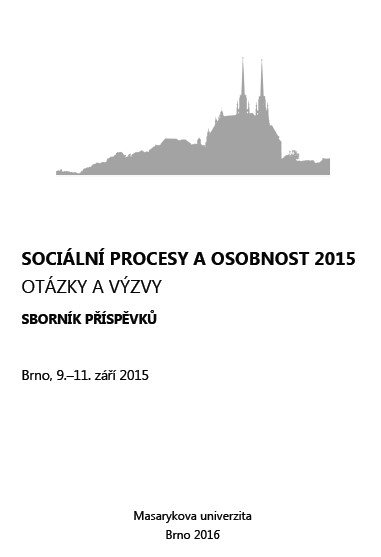
This paper examines feelings of people deceived by partner in instant messenger (IM) communication and possible ability of high-Machs to deceive better than low-Machs. 28 respondents participated in two IM conversations with group of other 28 people, whose machiavellianism was assessed. In the second conversation they were lied by partner, who received instruction to lie. Respondents felt conversation with lying partner as less pleasant than normal instant messenger conversation. Deceiving partner was perceived as less agreeable and more neurotic on Big Five scales than the non-lying partner. Participants higher in machiavellianism were perceived as less trustful by their communication partners in normal IM conversation. High-Machs were not found to be better liars than low-Machs.
More...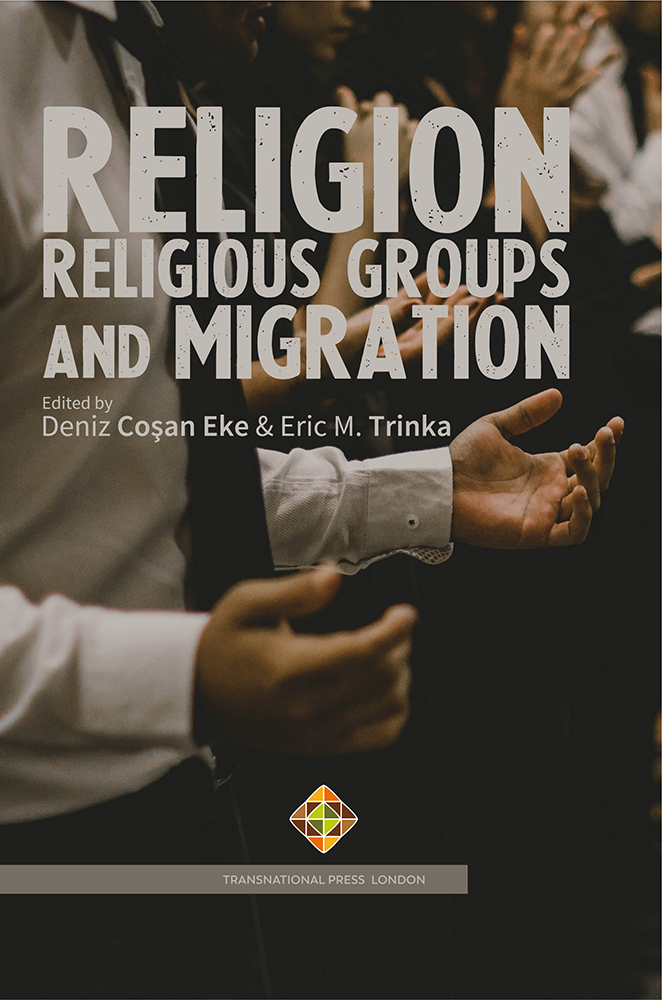
Interfaith communication can be defined as the interactions between religious or political actors belonging to different traditions who communicate with interlocutors on a particular issue, recognizing the importance of the religious dimension in their interactions. Such communication can alter the opinions of the “other” and allow mutual understanding and respect to develop between parties (Laustsen & Waever, 2000). Parties to these sensitive interactions usually find that their decisions depend on the interlocutor’s past, the expectations of the interlocutor’s future behavior, and trust levels. In this article, we investigate the role of uncertainty about others’ sincerity and trustworthiness in interfaith communication, especially in times of political conflict. We draw attention to the tensions between representing a community and reaching out to “the other side.” We offer a game-theoretical model of asymmetric information where players are unequal in terms of the information they have vis-à-vis each other’s preferences over the possible outcomes of their interaction.
More...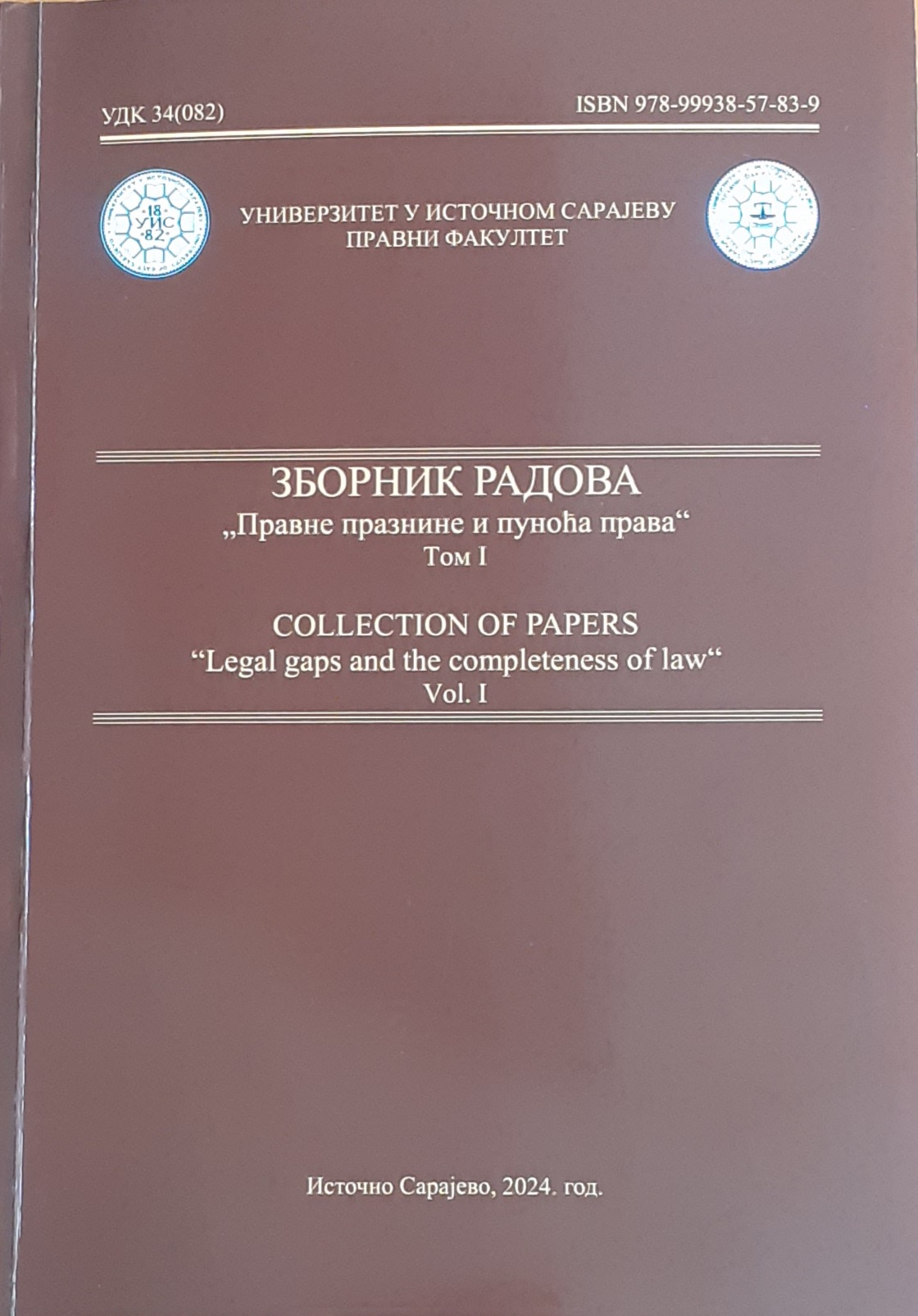
Great declarations of rights proclaimed the freedom of communication. This imperative is ingrained in most of the laws that organize this freedom. The most demanding interpretation is that the very purpose of communication is freedom. In the context of asymmetry between institutional actors of communication and its recipients, the recipients of communication are also the recipients of freedom, and freedom of communication must be realized in accordance with its purpose. The freedom of expression must be understood as a modality of the freedom of communication - not the opposite, as developed by liberal thinkers for whom the freedom of communication is only a new form or modality of freedom of individual expression. The privatization of media communication is a direct result of a private understanding of communication freedom that limits communication to its physical, technical, or economic aspects and, by broadening the laws that apply lets people make their own subjective claims about freedom. Degeneration of public regulation in self-finalized negotiation (corporatist and partisan) causes the privatization of media communication as well, which is the result of the state and national understanding of freedom. It is, therefore, not about suppressing the principle of sharing between "public communication" and "private communication" but rather about the recomposition of its modalities and the re-exploration between this sharing, nowadays reduced to a typical opposition between the state and the market. The digital revolution, which is perceived as the digitization and compression of computer data, can cause technological convergence, but it is limited to the universalization of infrastructure. Furthermore, the digital revolution does not cause economic convergence between different sectors of media communication (it instead increases competition between the media) nor a legal convergence (it rather risks causing the reduction of communications laws according to the common law of competition and the contract law). On the other hand, the digital revolution is an opportunity to formulate a renewed understanding of different communication rights - not to assimilate them, but to identify a common legal principle proper for media communication: the freedom of communication understood from a democratic perspective.
More...